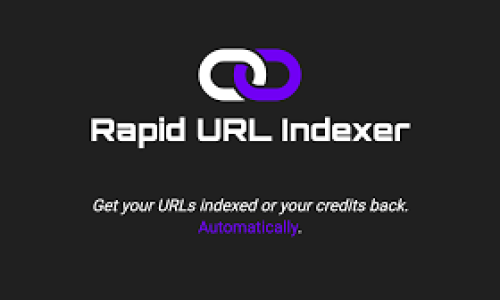
In an era where information is at our fingertips, users expect quick and easy access to answers. This is where a well-designed FAQ (Frequently Asked Questions) page comes into play. It serves as a centralized hub for addressing common questions and concerns, saving both your customers and your support team valuable time. But the benefits extend far beyond mere convenience.
Enhancing User Experience
1. Immediate Answers
One of the primary benefits of an FAQ page is that it provides immediate answers to common questions. This instant access to information can significantly improve user experience by reducing frustration and wait times. When users find answers quickly, they are more likely to have a positive impression of your brand.
2. Building Trust and Credibility
A well-crafted FAQ page can also help build trust and credibility with your audience. By addressing common concerns transparently and comprehensively, you demonstrate that you understand your customers’ needs and are committed to providing valuable information. This transparency can lead to increased customer confidence and loyalty.
3. Reducing Support Workload
For businesses, especially small ones and startups, handling customer inquiries can be time-consuming and resource-intensive. An FAQ page can reduce the volume of support tickets and calls by providing answers to common questions. This allows your support team to focus on more complex issues, improving overall efficiency.
Boosting SEO
1. Targeting Long-Tail Keywords
FAQ pages are an excellent opportunity to target long-tail keywords. These are often questions that potential customers type into search engines. By optimizing your FAQ page with relevant keywords, you can improve your search engine rankings and drive more organic traffic to your site.
2. Increasing Dwell Time
When users land on your FAQ page and find it helpful, they are likely to spend more time on your website. This increased dwell time signals to search engines that your content is valuable and relevant, which can positively impact your SEO rankings.
3. Earning Backlinks
High-quality FAQ pages that provide valuable information can attract backlinks from other websites. These backlinks are crucial for SEO, as they signal to search engines that your content is authoritative and trustworthy. For instance, our comprehensive SEO services at NexTech Studio can help you optimize your FAQ page to attract these valuable backlinks.
Driving Conversions
1. Addressing Objections
An FAQ page can play a crucial role in the decision-making process by addressing potential objections and concerns. By providing clear and concise answers, you can alleviate doubts and encourage users to take the next step, whether it’s making a purchase, signing up for a newsletter, or contacting your sales team.
2. Highlighting Key Benefits
Use your FAQ page to highlight the key benefits of your products or services. This is an excellent opportunity to reinforce your value proposition and remind users why they should choose your business over competitors. For example, at NexTech Studio, we offer custom web design solutions tailored to meet the unique needs of small businesses and startups.
3. Enhancing User Journey
A well-designed FAQ page can seamlessly guide users through their journey on your website. By strategically placing internal links to other relevant pages, such as your digital marketing services, you can encourage users to explore more of your site and learn about the full range of services you offer.
Best Practices for Creating a Well-Designed FAQ Page
1. Understand Your Audience
To create an effective FAQ page, it’s essential to understand your audience’s needs and preferences. Conduct surveys, analyze customer inquiries, and gather feedback to identify the most common questions and concerns. This will help you tailor your FAQ page to address the specific needs of your audience.
2. Organize Questions Logically
Organize your FAQ page in a logical and user-friendly manner. Group related questions together and use clear headings and subheadings to make it easy for users to find the information they need. For instance, you could have sections for general inquiries, product-specific questions, and troubleshooting tips.
3. Use Clear and Concise Language
Avoid jargon and overly technical language on your FAQ page. Use clear and concise language to ensure that the information is accessible to all users. Aim to provide straightforward answers that are easy to understand.
4. Incorporate Visual Elements
Enhance your FAQ page with visual elements such as images, infographics, and videos. Visual aids can help clarify complex information and make your FAQ page more engaging. For example, a short explainer video can be an effective way to address a common question.
5. Keep It Updated
Regularly review and update your FAQ page to ensure that the information remains accurate and relevant. As your business evolves and new questions arise, make sure to add them to your FAQ page. An outdated FAQ page can lead to confusion and frustration among users.
Examples of Well-Designed FAQ Pages
To give you some inspiration, here are a few examples of well-designed FAQ pages:
- Shopify – Shopify’s FAQ page is organized into clear sections, making it easy for users to find answers to specific questions. They also use a mix of text and visual elements to enhance the user experience.
- Zendesk – Zendesk’s FAQ page includes a search bar, allowing users to quickly find relevant information. They also provide links to related articles and resources.
- Airbnb – Airbnb’s Help Center features a well-organized FAQ section with concise answers to common questions. They also use visual aids to make the information more accessible.
FAQs
What is an FAQ page?
An FAQ page is a section of a website dedicated to answering common questions and concerns that customers may have. It helps provide quick and easy access to information.
How does an FAQ page improve SEO?
An FAQ page can improve SEO by targeting long-tail keywords, increasing dwell time, and earning backlinks from other websites.
How often should I update my FAQ page?
It’s important to regularly review and update your FAQ page to ensure the information remains accurate and relevant. Aim to update it at least once every few months or whenever new questions arise.
Can an FAQ page reduce customer support workload?
Yes, an FAQ page can reduce customer support workload by providing immediate answers to common questions, allowing your support team to focus on more complex issues.
What are the best practices for creating an FAQ page?
Best practices include understanding your audience, organizing questions logically, using clear and concise language, incorporating visual elements, and keeping the page updated.
Conclusion
In conclusion, a well-designed FAQ page is a powerful tool that can enhance user experience, boost SEO, and drive conversions. By providing immediate answers to common questions, building trust and credibility, and addressing potential objections, an FAQ page can significantly impact your business’s success. At NexTech Studio, we understand the importance of a comprehensive and user-friendly FAQ page. Whether you’re looking to create a new website or improve an existing one, our web design and development services are tailored to meet your unique needs. Contact us today to learn more about how we can help your business thrive in the digital age.
By incorporating these elements, you can create a compelling and informative FAQ page that meets the needs of your audience and supports your business goals.




